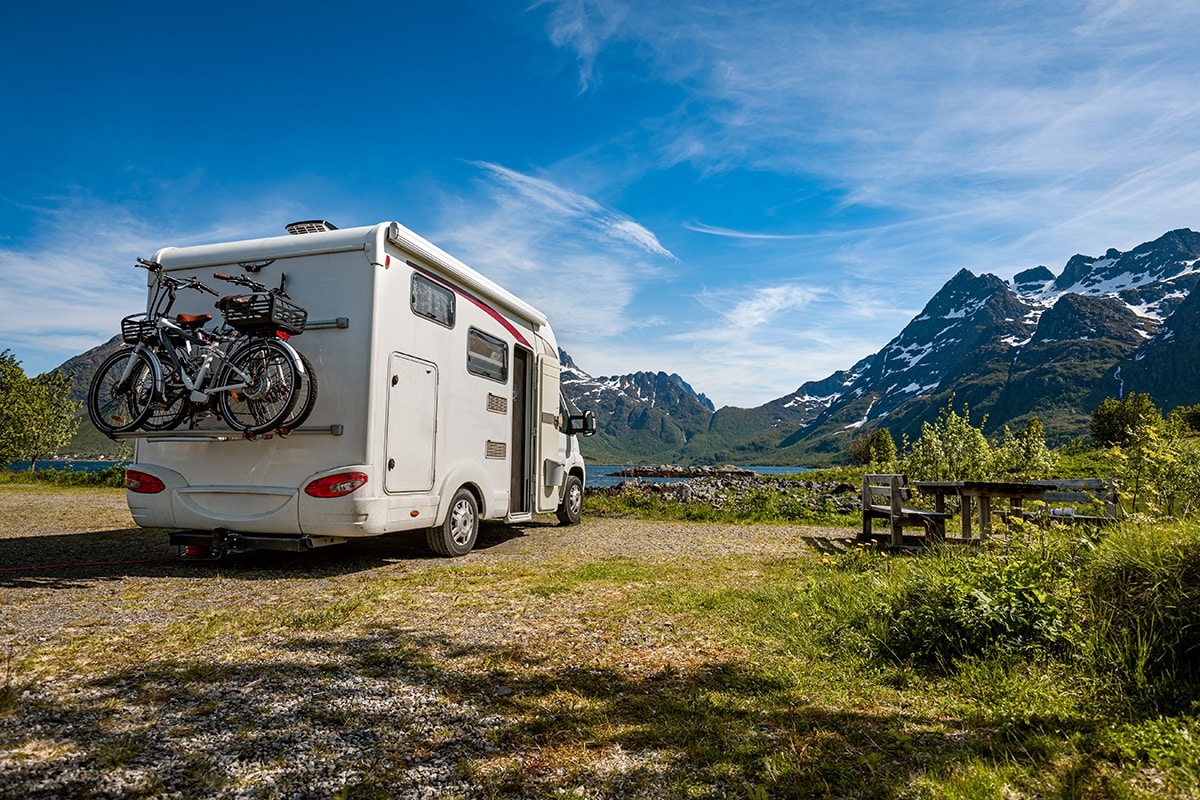A journey into nature: Why motorhome tours are environmentally friendlyIt is not only since Corona that the enthusiasm for independent, nature-oriented travel has been growing – whether by tent or motorhome. The latter in particular, long ridiculed as pensioner-like, is experiencing a revival among younger people. The reasons are obvious: With a motorhome, campervan or caravan, it is possible to travel far away from civilization and mobile in nature. It is also more luxurious than a tent holiday. The best way to start your holiday or road trip is with your own mobile hotel right on your doorstep. Long and environmentally harmful journeys by plane are avoided in this way.
Motorhome and sustainable
Anyone who likes to travel knows that the size of the CO2 footprint is largely determined by the type of journey. Cruises are the most harmful to the climate, followed by travel by plane. All other mobility variants are among them – i.e. they have a lower CO2 footprint. Especially with the topic of sustainability in mind, the question certainly arises for one or the other: How environmentally friendly are motorhome tours?
The answer depends on several factors. Among other things, of course, on the length of the distance to be covered and the length of the stay at the destination(s). But driving behaviour or the number of passengers also have an influence.
If the holiday destination is not too far away and the stay is comparatively long, a motorhome holiday is more environmentally friendly than, for example, travelling by car plus staying in a hotel. This is because classic hotels often release significantly more CO2 equivalents than an overnight stay at a campsite or even camping close to nature.
Climate-friendly holidays with a motorhome = slow travel
It goes without saying that holidays in the vicinity are more environmentally friendly than those with long, fuel-intensive journeys. So if you want your motorhome holiday to be as climate-friendly as possible, it is advisable to travel slowly. This means: rather few, but longer vacations that start right on the doorstep and/or lead over shorter distances. If the destination is further away, it is worthwhile to travel by train in a climate-friendly way and rent a camper or motorhome on site.
Rent a motorhome instead of buying
Especially if
tours are planned for beginners
, it proves to be practical to rent the mobile sleeping place instead of owning such a vehicle yourself. But renting is also recommended for experienced caravanners. If you decide to travel by motorhome, you should think carefully about whether it really needs to be your own vehicle. This is because this already causes a large ecological footprint during production. In addition, there is the financial burden of acquisition and maintenance as well as the need for space. Because: As a rule, the vehicle stands around unused and space-consuming for many months of the year. A big plus point of renting: You don’t have to worry about where the large vehicle is parked when you are not on the road. The only costs that holidaymakers face are the rental price, petrol and pitch costs.
Other factors that reduce the CO2 footprint
Other factors have an influence on the environmental friendliness of motorhome travel. If you don’t necessarily need a rolling palace, you should choose small models or the smallest possible variant, depending on the number of passengers. If you are traveling as a couple, you could, for example, camp in a small van the size of a VW bus. A group of several people makes the right choice with a slightly larger motorhome with three or more berths. In addition, you should rely on newer vehicles, as the engines work much more efficiently and therefore require less fuel. Most motorhome rental companies have a modern fleet of vehicles. By the way: The size of the load is also a factor that should not be underestimated. Less weight means less fuel consumption and thus protects the environment. Pack as much as necessary, but as little as possible. If you want to be climate-friendly mobile at your holiday destination or during stopovers, pack your bikes or rent them on site. In this way, you can leave the motorhome on the pitch and explore the surroundings completely fuel-free by bike.


